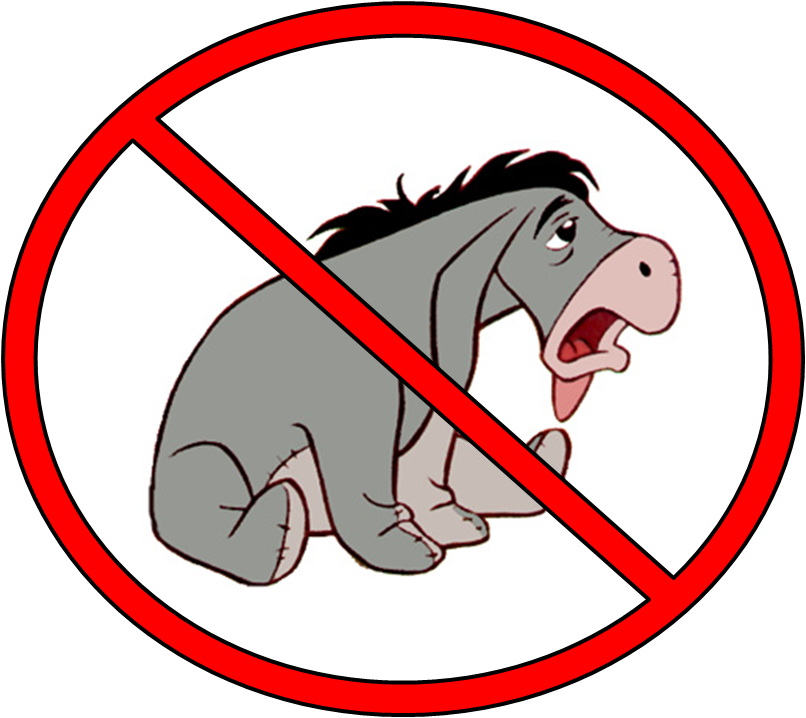Browse Blog Categories
- General (90)
- Business (94)
- Business Coaching (71)
- Business Management (97)
- Business Systems (25)
- Entrepreneur (71)
- Executive Coaching (34)
- Family Business (83)
- Leadership (99)
- Management (91)
- Marketing (16)
- Profitability (19)
- Sales (18)
- Speaking Topics (5)
- Success In Business (97)
- Team Building (41)
- Time Management (3)
Janna's Blog
 "No one listens to my ideas! I can share an idea with my team and it gets dismissed. Then a few months later someone else on the team shares essentially the same idea and everyone sees the merit and we implement that idea. It is so frustrating to not be listened to!"
"No one listens to my ideas! I can share an idea with my team and it gets dismissed. Then a few months later someone else on the team shares essentially the same idea and everyone sees the merit and we implement that idea. It is so frustrating to not be listened to!"Such is the lament I have heard from countless executives, CEOs, and team members at organizations of all sizes and shapes. I'm consistently asked how to fix this "issue", in part so that a good idea can be implemented that much sooner.
Yes, it is true that many good ideas are ignored based on factors such as how the idea is delivered, timing, and--of course--the person making the delivery. While all of these factors can be improved upon, many times the core issue is a concept of the farmer and the seeds.
As a teenager I spent a summer on a Nebraska farm. One of the many discoveries I made is that farming takes patience and perseverance. In the spring, the seed is planted after the ground is prepared. It is then watered - usually by rain and also by irrigation in some parts of the country - and then you wait for the harvest, which usually isn't ready until the mid to late summer.
If you think all of your business ideas are being ignored, here's another way to interpret it. Think of those ideas as seeds that need time to be watered, to germinate, and then break through the hard crusted soil of your team's ears and listening skills. You are the farmer that needs to till the soil as well as provide the water, sunlight, and time needed to actually produce a plant worth harvesting.
So often ideas are ahead of their time, or team members aren't good at taking something new and running with it. Sometimes the idea percolates in the brains of the team, often without them really understanding that they are processing that exact idea that you planted. It then shows up as their idea, and they don't even remember that you planted that seed months ago. Now I do agree that there are people who steal ideas for their own. That is unfortunate but also ultimately career-ending when the thief is discovered.
Your challenge is both to understand farming within your organization and to accept the incredible value you provide by being the farmer who plants the seed. Ideas need time to germinate. Some ideas often come before their time. One idea can be a foundation for a better idea. I have often joked that I was the queen of bad ideas. Yet any bad idea (among my many good ones) generally created the discussion and thought process needed to develop a better, more successful idea.
So for those who are the farmers in your business and planting seeds within the organization, appreciate the value you provide and stop whining that no one listens to you. They do; it just often takes time for those seeds to become fruitful--and for people to thank the farmer.
 Let’s start with a story.
Let’s start with a story.Two business owners are in the same market, offer essentially the same products, target mutual markets, and yet at year end, produce very different results. One business is doing well, the other is doing poorly. One business owner seems on top of their game, the other isn’t succeeding. One business is growing, the other business is barely scraping by and the owner is beginning to wonder whether it is time to sell, or maybe just shut the doors.
What is the difference between the two businesses? There can be any number of factors to consider. Perhaps the owners differ in the amount of knowledge and skills they have for running a business; there may be a difference in the systems which have been put into place--or maybe they are missing altogether. Consider the team that drives the business forward, how pricing is determined, how marketing is presented, and how sales are made. Many factors play into the success and growth of a business. Yet, there is one characteristic that creates the largest differentiator between the two business environments: the mindset of the owner and/or leadership. What is their perspective on every situation, every economic obstacle, every customer, and perhaps on life in general? The attitude of leadership sets the tone for the environment of the business.
Is there a pervasive attitude similar to Eeyore, the donkey friend of Winnie-the-Pooh? In this type of environment the we get below-the-line thinking which produces a string of blame, excuses, and denial manifested in “woe is me” attitudes such as life is hard, this is what happened, I don’t get the same opportunities as others, the economy is really hurting, etc. In below-the-line thinking we often hear people blaming someone else, producing excuses for why things didn’t get accomplished, and denying that their attitude is a main source of the issues at hand. Below-the-line thinking creates a reason for everything and generates a need to offer explanations.
On the other hand, the attitude that propels above-the-line thinking is more like Pooh’s friends Kanga or Owl. Above-the-line thinkers accept ownership, accountability, and responsibility for everything they do. They understand that what they cannot control (economy, taxes, etc.) is only 10% of life, but what they have great control over is 90% of their life. This is what Stephen Covey, author of The Seven Habits of Highly Effective People, calls the 90/10 rule. How your day goes is totally up to you, as is how you react to the difficult situations and even the successes you achieve through disastrous times. Steve Jobs got fired from Apple which most likely was not what he called the best day of his life, yet without being fired from Apple he would not have created Pixar and NeXT which are part of the foundation of the Apple products we love today. Above-the-line thinking creates results, and results don’t require explanations. They speak for themselves.
 What is critical thinking? There are multiple definitions, some very complex, yet the simple definition is not just the possession of skills but the ability and habit to continually use them in new and different ways. Put another way, critical thinking means using the normal to create and then apply the new.
What is critical thinking? There are multiple definitions, some very complex, yet the simple definition is not just the possession of skills but the ability and habit to continually use them in new and different ways. Put another way, critical thinking means using the normal to create and then apply the new.Over the last five years I have often challenged clients and workshop attendees on their critical thinking skills. These are bright, qualified, skilled and hardworking business owners and executives who have accomplished significant challenges in their careers and business. They have worked through significant challenges and look at the world in ways that many of us don’t comprehend.
Yet, when posed with out-of-the-box types of problems they find it challenging to come up with not simply a good answer, but with that “best” answer. I wonder if the day-to-day challenge of running their business environments has reduced their ability to be creative critical thinkers.
I had the opportunity to be the guest speaker for a high school leadership training class. There were about 30 students from about five high schools. It was a fun time of encouraging them to consider their classroom and personal goals for the next school year. Don’t I wish I had that opportunity when I was 17! (But that is another topic.)
I presented them with two out-of-the-box scenarios and was looking for that elusive "best" answer. When presenting similar scenarios to business owners, they throw ideas at me for a couple of minutes – and then I give them the “best” answer. So it amazed me that within about 20 seconds a number of the students had thought of the “best” answer for my hypothetical situations.
I was surprised, yet it made me extremely hopeful. For all the criticism of today’s youth and millennials, maybe their critical thinking skills are a lot better than we think. Maybe their fresh way of looking at things is that advantage we need in our business. We do need to stop, listen and allow them the time to say things – even things that we may not fully understand.
Did we somewhere along the way - in running businesses, fighting the daily fight of life - stop thinking critically? Have we stopped being creative in our thought processes and now default to what is easy or normal? We believe we are the harder working and wiser generation, but we seem to have stopped using any critical thinking skills that are outside our comfort zone.
My challenge to you: Change your thinking process--start thinking like an 18 year old. It might revolutionize your business, you just might have some fun, and you'll ultimately prepare your business for the growth that comes with a new generation of leaders.
Ready to get started
Call or contact Janna Hoiberg online to schedule a free, initial consultation.
There is no obligation and you're guaranteed to learn a few new things about your business.